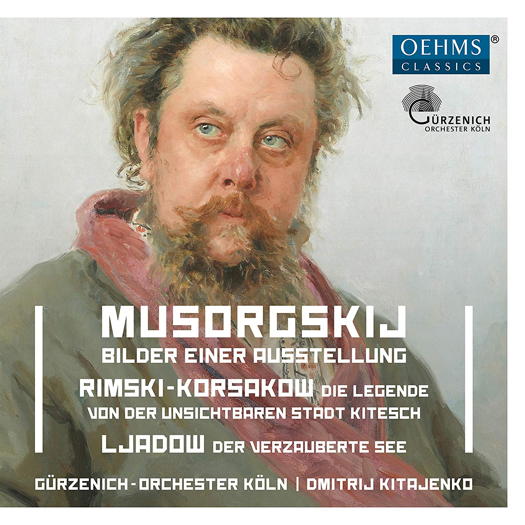 DISCUSSION: Defining Our Field - what is 'classical music' to us, why are we involved and what can we learn from our differences? Read John Dante Prevedini's essay, watch the panel discussion and make your own comments.
DISCUSSION: Defining Our Field - what is 'classical music' to us, why are we involved and what can we learn from our differences? Read John Dante Prevedini's essay, watch the panel discussion and make your own comments.
- Montserrat Figueras
- Falla
- Origin Classical
- Silvestre Revueltas
- rock music
- Tchaikovsky: The Nutcracker
- Dmytro Fonariuk
- Mišek: Sonata for Double Bass No 2
 DISCUSSION: John Dante Prevedini leads a discussion about Composers, individuals or collective?, including contributions from David Arditti, Halida Dinova, Robert McCarney and Jane Stanley.
DISCUSSION: John Dante Prevedini leads a discussion about Composers, individuals or collective?, including contributions from David Arditti, Halida Dinova, Robert McCarney and Jane Stanley.

From Russia with Love
Musorgsky, Rimsky-Korsakov and Liadov
orchestral music from Dmitry Kitajenko
and the Gurzenich Orchestra, Cologne,
impresses GERALD FENECH
'Kitajenko draws some gorgeous playing from his Cologne forces, and dynamic and tempo markings are observed with fidelity. Also, orchestral textures are both warm and revealing of inner detail.'
This CD can be considered as an exhibition of all that is fantastically beautiful in Russian music. Indeed, Musorgsky's Pictures at an Exhibition fits the programme to perfection, not only music-wise, but title-wise as well. 'Pictures' certainly needs no introduction, as the popularity it enjoys is phenomenal. Suffice it to say that this piece written for solo piano has been orchestrated by several composers, most notably Rimsky-Korsakov and Ravel. Victor Hartmann was a lifelong friend of the composer but this bond was cut short when this Russian architect and draughtsman of German origin died prematurely in 1873, aged only thirty-nine.
One year on, some four hundred of his graphic works could be viewed in an exhibition held at the Academy of Arts in St Petersburg. Musorgsky visited the exhibition, and as a token of admiration for his deceased friend he composed his musical commemoration in the form of ten piano pieces depicting scenes, situations and characters from Hartmann's huge opus. Despite the fertile imagery of the pieces, 'Pictures' had only a moderate success. Almost fifty years had to pass before this composition found its rightful place in the repertoire, all this thanks to Maurice Ravel, who produced an orchestral version of such brilliance and spectacularity that at the end audiences are always left with a pounding heart.
Listen — Musorgsky: The Great Gate of Kiev (Pictures at an Exhibition)
(track 15, 4:00-5:17) © 2017, 2019 OehmsClassics Musikproduktion GmbH :
Rimsky-Korsakov composed seventeen operas but, apart from Le Coq d'Or, his last stage work, the rest hardly get a look in outside Russia. Composed between 1902 and 1904, The Legend of the Invisible City of Kitezh and of the Virgin Fevronia is Rimsky's penultimate opera and, in my humble opinion, his best and most descriptive. The work is a fanciful fairytale, yet at the same time a parable on repression and political conceit. The peasant girl Fevronia's prayer that the city of Kitezh becomes invisible to be saved from Tartar attack is magically heeded. The girl, however, is captured and has to sacrifice herself to save the people she loves. The music is simply wondrous, with highly expressive tone-paintings describing forests, weddings, battles and dream-like situations all in a mix with some of the composer's most inventive orchestration. The Suite here represents a faithful example of what Russian opera is all about.
Listen — Rimsky-Korsakov: The Battle at Kherzhenets
(The Legend of the Invisible City of Kitezh)
(track 18, 0:59-1:55) © 2017, 2019 OehmsClassics Musikproduktion GmbH :
The last piece in this Russian musical gallery is Anatoly Liadov's The Enchanted Lake. Composed in 1909, this evocative but short piece draws the listener into an enchanting world of stars shining on the watery surface of a serenely surrounded lake, rippling gently with a caressing breeze.
Listen — Liadov: The Enchanted Lake
(track 20, 6:16-7:15) © 2017, 2019 OehmsClassics Musikproduktion GmbH :
Kitajenko draws some gorgeous playing from his Cologne forces, and dynamic and tempo markings are observed with fidelity. Also, orchestral textures are both warm and revealing of inner detail. From Russia with love, in clear sound and with helpful notes.
Copyright © 19 June 2019
Gerald Fenech,
Gzira, Malta



